What’s On
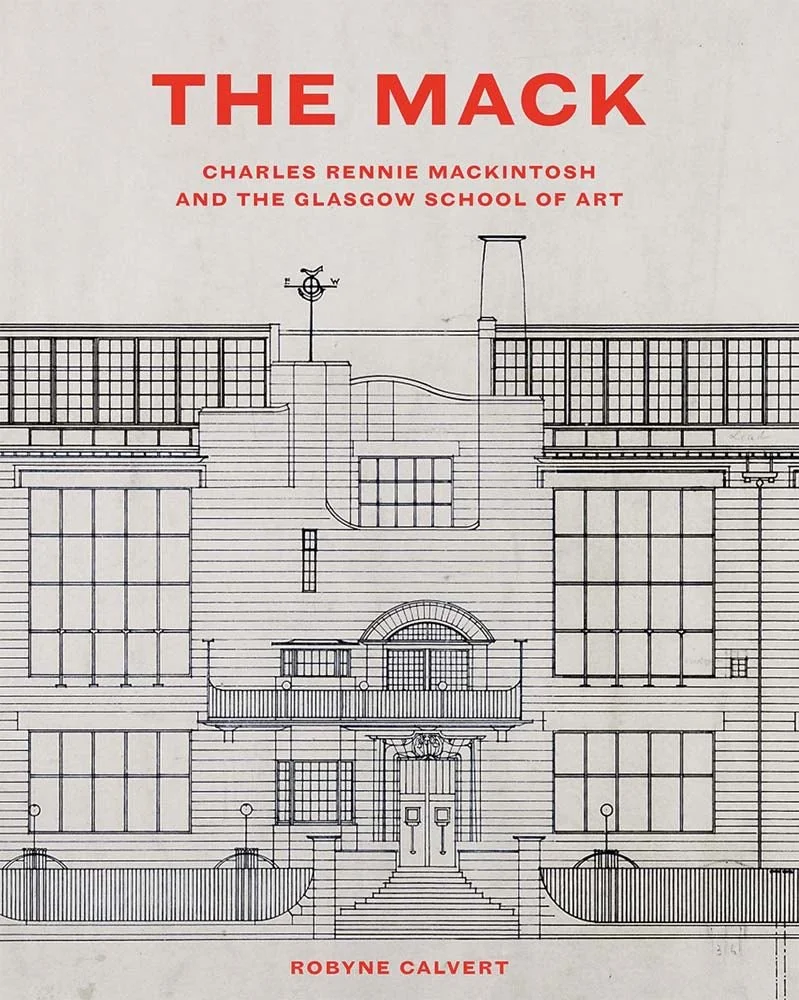
Through the Fires: The Mackintosh Building at the Glasgow School of Art
SAHGB - IHR Seminar
Speaker: Dr Robyne Calvert

‘A wondrous bird is the Pelican’: The 1950s Revolution in British Architectural History
SAHGB Annual Lecture 2026
Speaker: Elizabeth McKellar

Looking Forward: Connecting, Informing & Engaging Architectural History through SAHGB’s Networks
70th Anniversary Event Series
In the afternoon of May 1st, preceding the annual conversation, SAHGB’s EDI & ECR Networks will host a 2-hour workshop on the theme of challenges and opportunities in architectural history today.
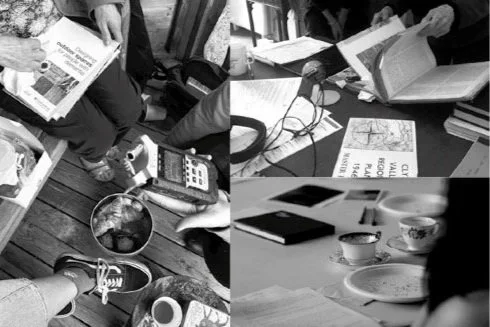
The Inaugural Annual Conversation
70th Anniversary Event Series
Part 1: Keynote presentation by Prof. Suzanne Ewing
Part 2: Conversation with guest respondents and the audience

Barcelona Study Tour
Register Interest
Barcelona has richly varied architecture, and the opportunity has arisen to secure privileged visits to to some of the city’s most iconic and rarely accessible architectural and cultural landmarks.
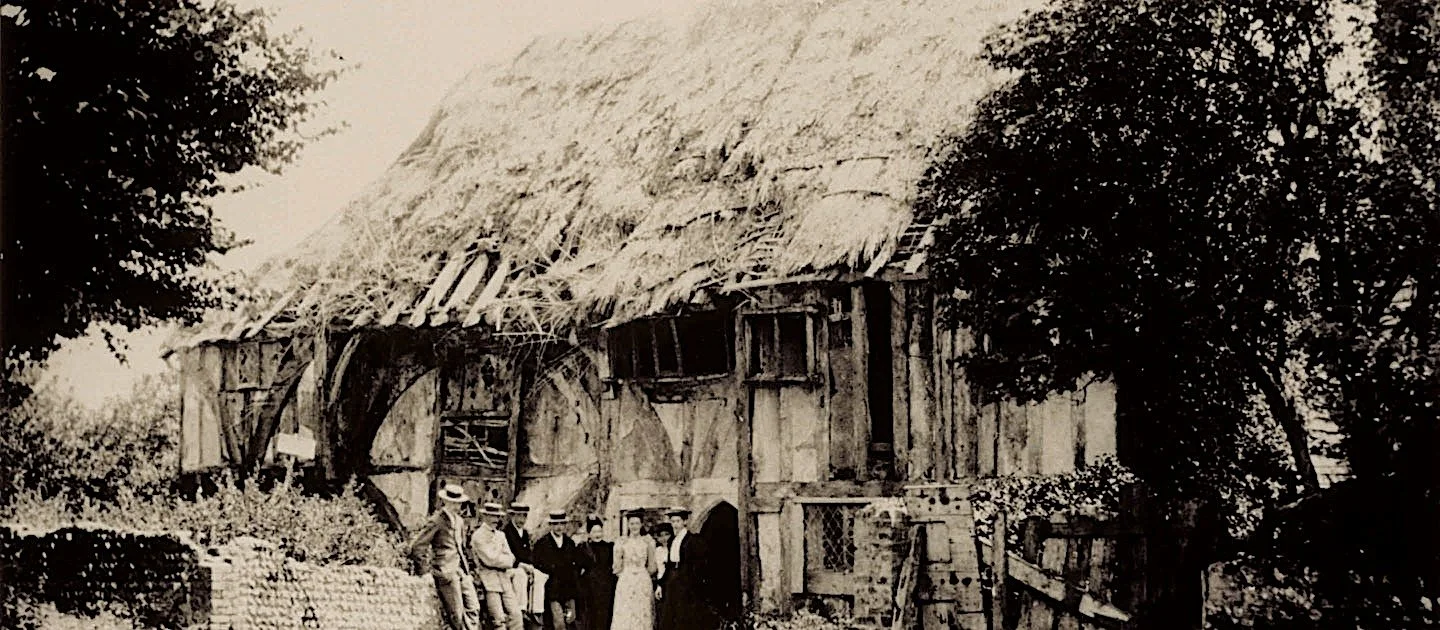
Beauty for the People: Architecture and the Queer Origins of the National Trust
SAHGB - IHR Seminar
Speaker: Michael Hall
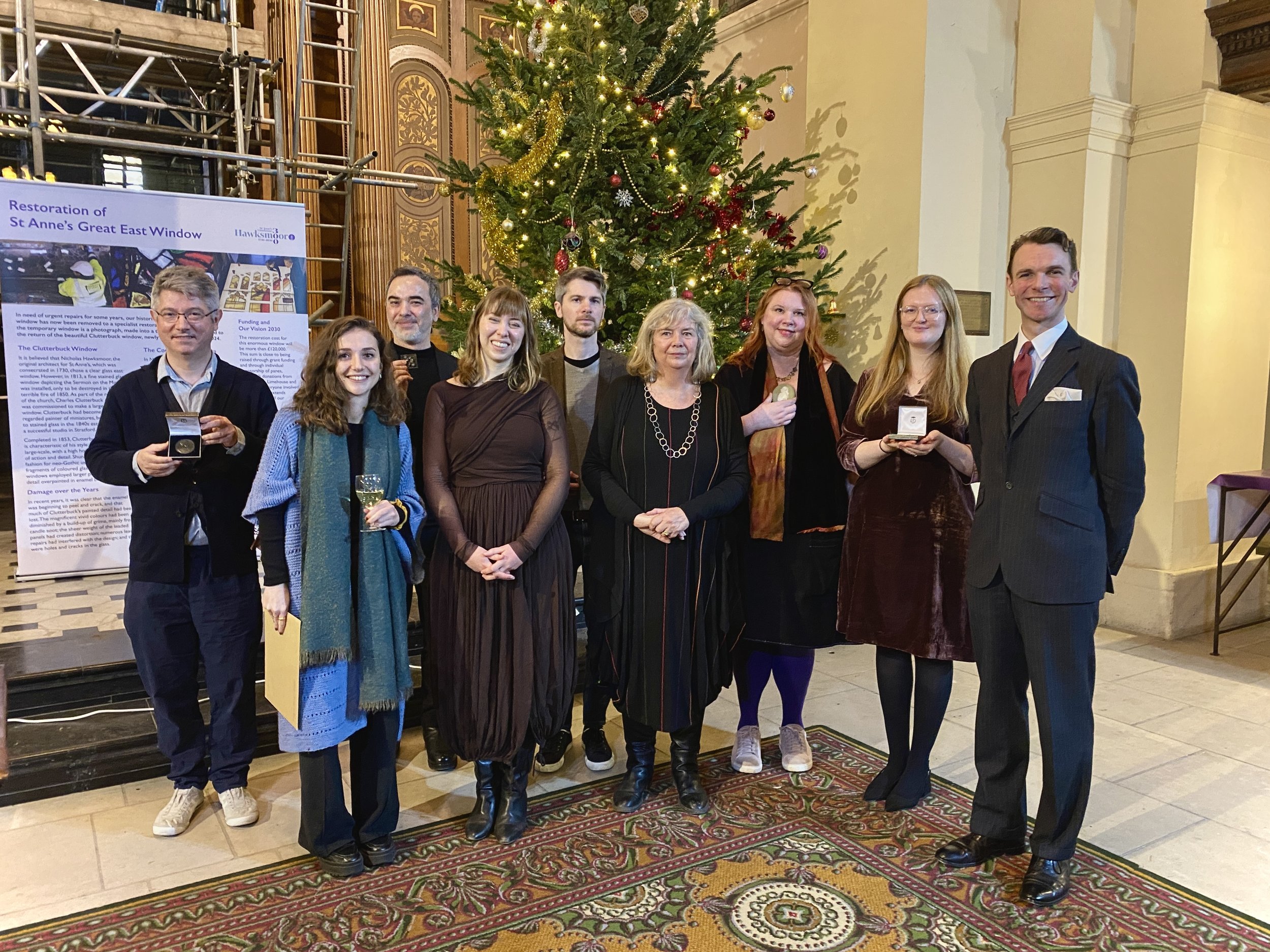

2025 Annual General Meeting
The Annual General Meeting of the Society of Architectural Historians of Great Britain
The Alan Baxter Gallery, 75 Cowcross St, London.

Hostel, House and Chambers: Accommodating the Victorian and Edwardian Working Woman
SAHGB - IHR Seminar
Speaker: Emily Gee

9.5mm to 35mm, Rome to Greece: Architecture, Classical Antiquity, and the Silent Screen
Online Lecture
Speakers: Dr Aylin Atacan & Professor Maria Wyke

Architectural Historiography in the British Isles: National and International Perspectives
The Second Annual Mark Girouard Symposium
Since 1980, studies of the historiography of architectural history, as well as the institutional and cultural frameworks within which it is situated, have grown enormously. The symposium seeks to examine how the discipline has developed over the past forty years and to ask what forms architectural history takes today in Britain and Ireland.

Places of the Imagination: Painting the City in the Sassetti Chapel, Florence
SAHGB - IHR Seminar
Speaker: Caspar Pearson
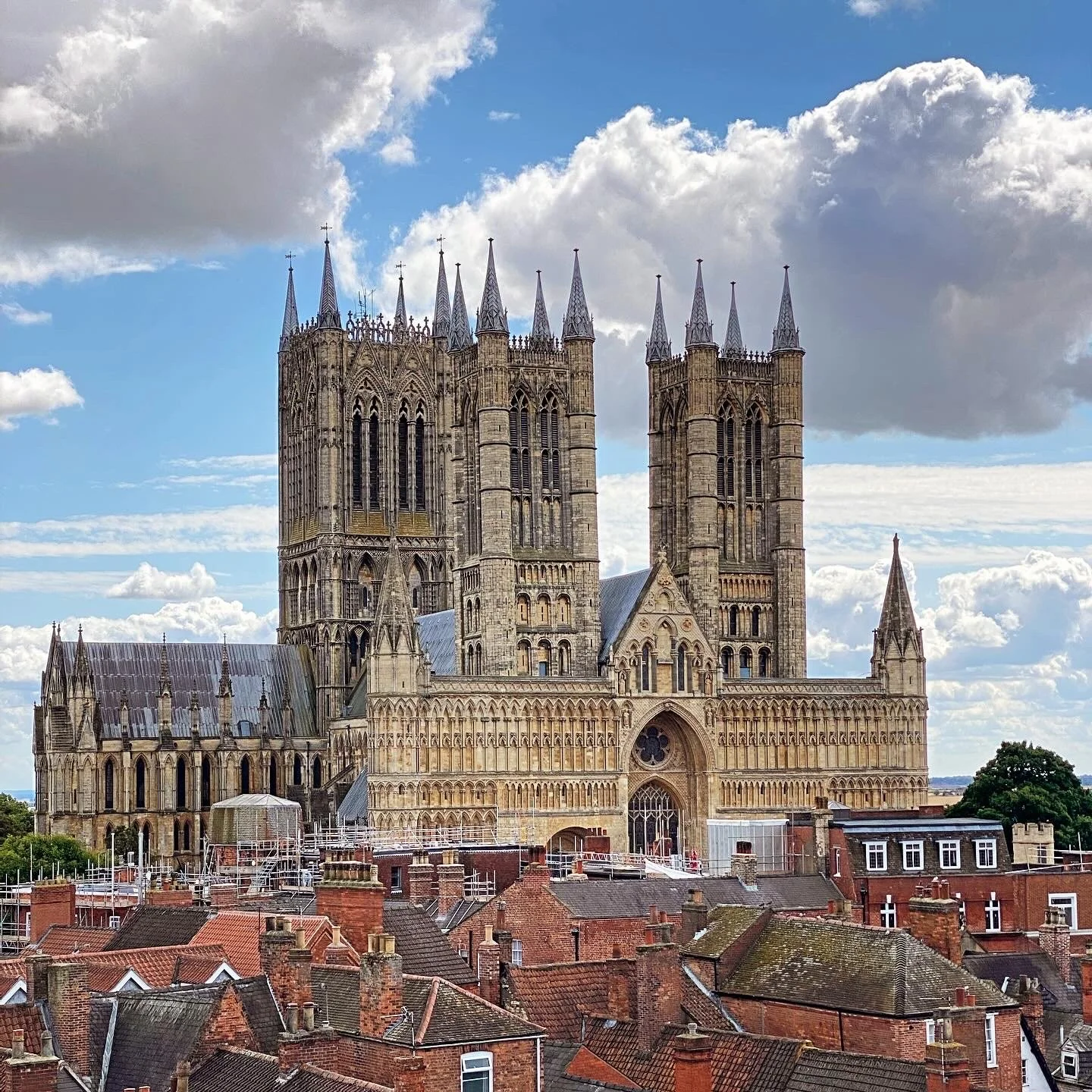
Study Day to Lincoln Cathedral Close
Fully Booked
A day exploring the medieval close of Lincoln Cathedral, including insights by experts undertaking new dendrochronology research, and exclusive access to buildings not open to the public.

SAHGB ‘Future Heritage’ Conference 2025
This two-day SAHGB conference, supported by Docomomo-International and Docomomo-Scotland, will explore the idea of ‘Future Heritage’.
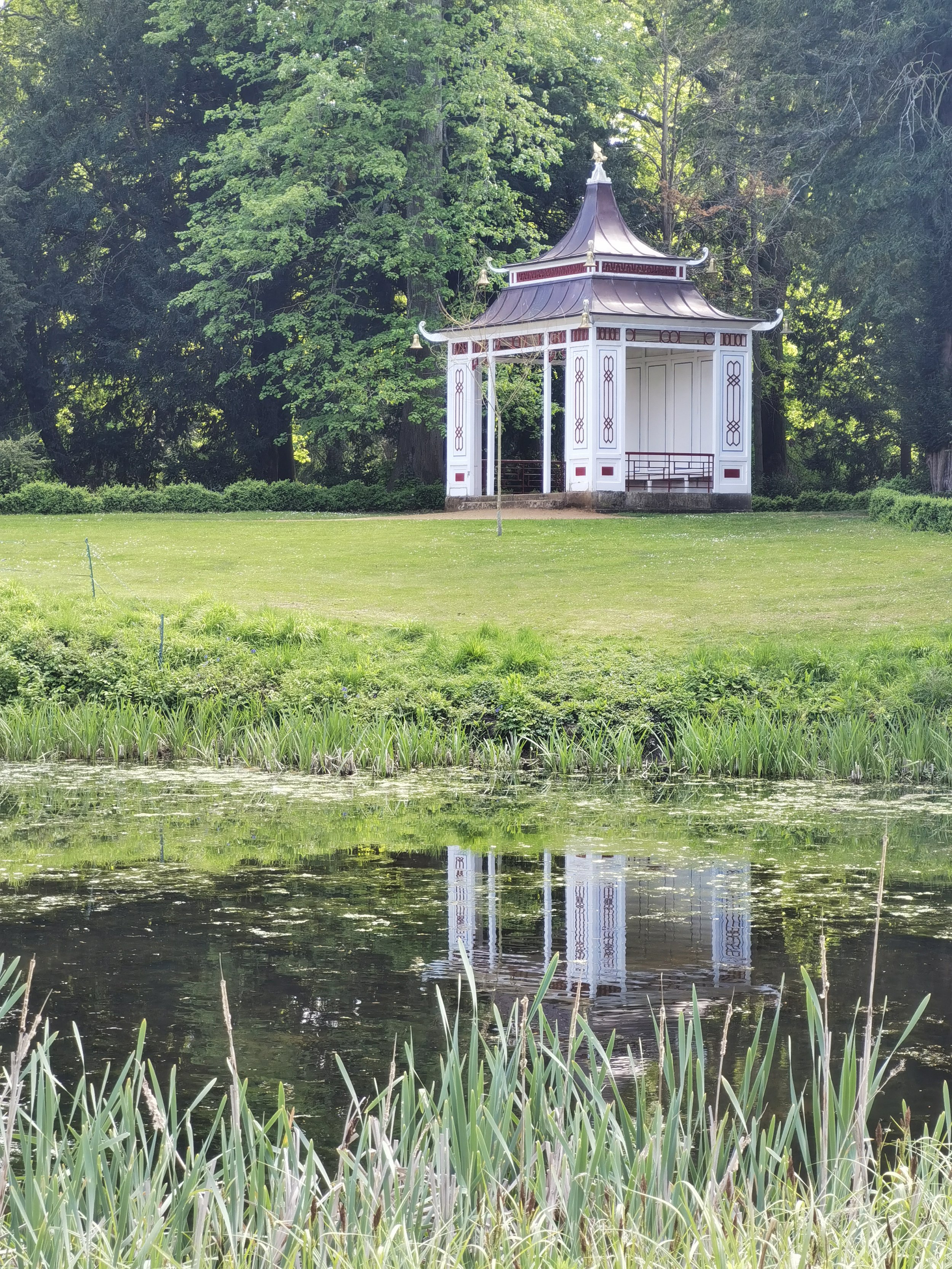
The Institutionalisation of ‘taste’ in Architecture: The British Construction of Chinoiserie in the 17th and 18th Centuries
This seminar will move beyond traditional frameworks of national identity and political history, exploring the unique role of personal encounters in constructing Chinoiserie architecture in 17th- and 18th-century Britain.

When is a Building Finished? Lessons from Late Medieval Architectural Culture
Since the Renaissance, architectural writers have often conceived the subject in terms of the design and the designer - prioritising them over the social context, the materiality of buildings, the methods of construction employed and their life in use, which usually involves physical alteration.


Carboniferous Creations: Victorian Gothic Revivalism and the Ecocritical Turn
In this lecture Alex will explore how we might interpret the modern Gothic Revival as a unique outcome not merely of industrialisation but of the carbon-based economy that drove it, suggesting an ecocritical historiography that foregrounds its environmental allusions and discontents.
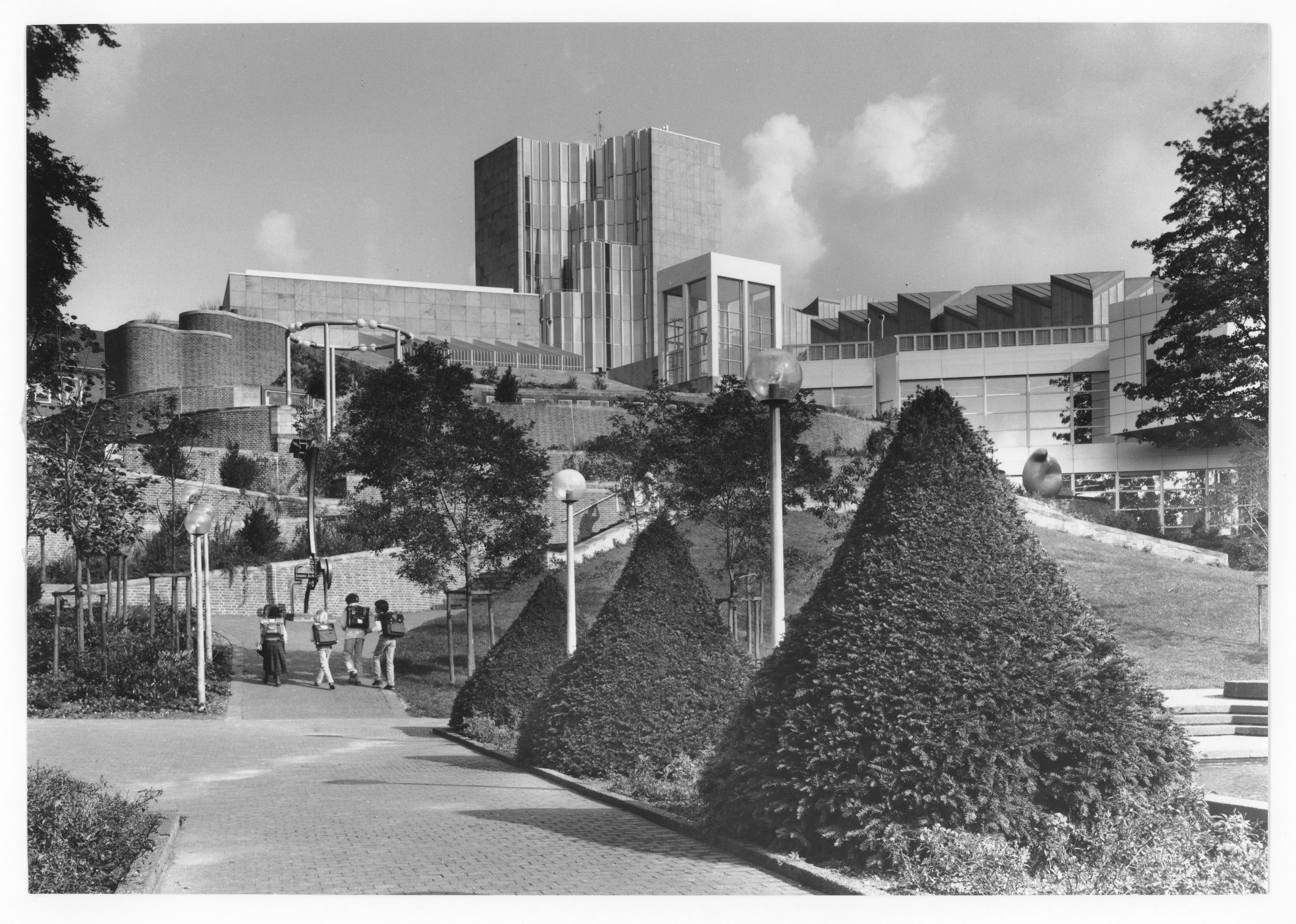

The SAHGB Annual Lecture: A Conversation About the Shape of Buildings to Come
Convened and chaired by: Tanvir Hasan
Guest speakers: Tom Foxall, Niall McLaughlin, Ingrid Schroder, and Amin Taha

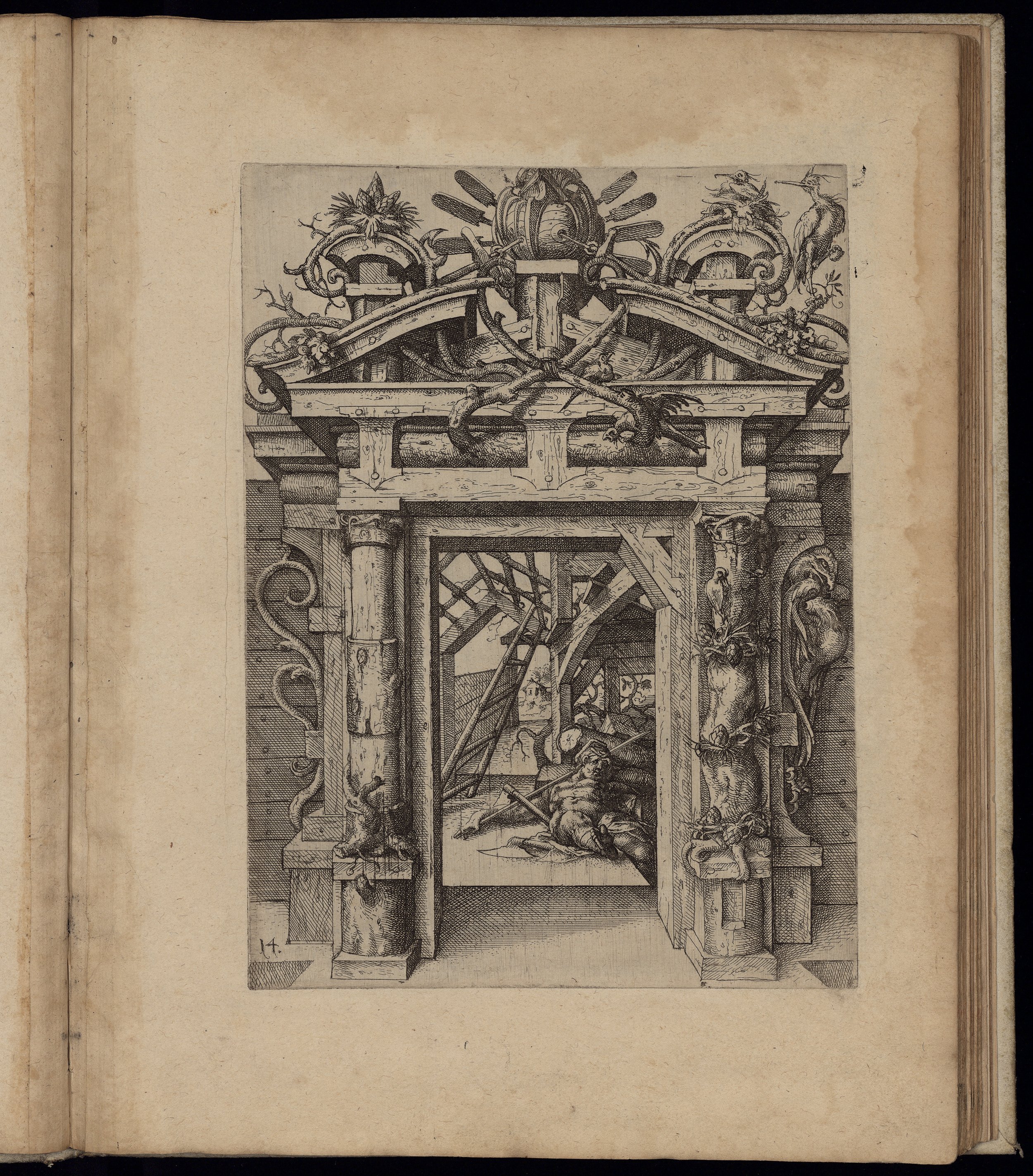
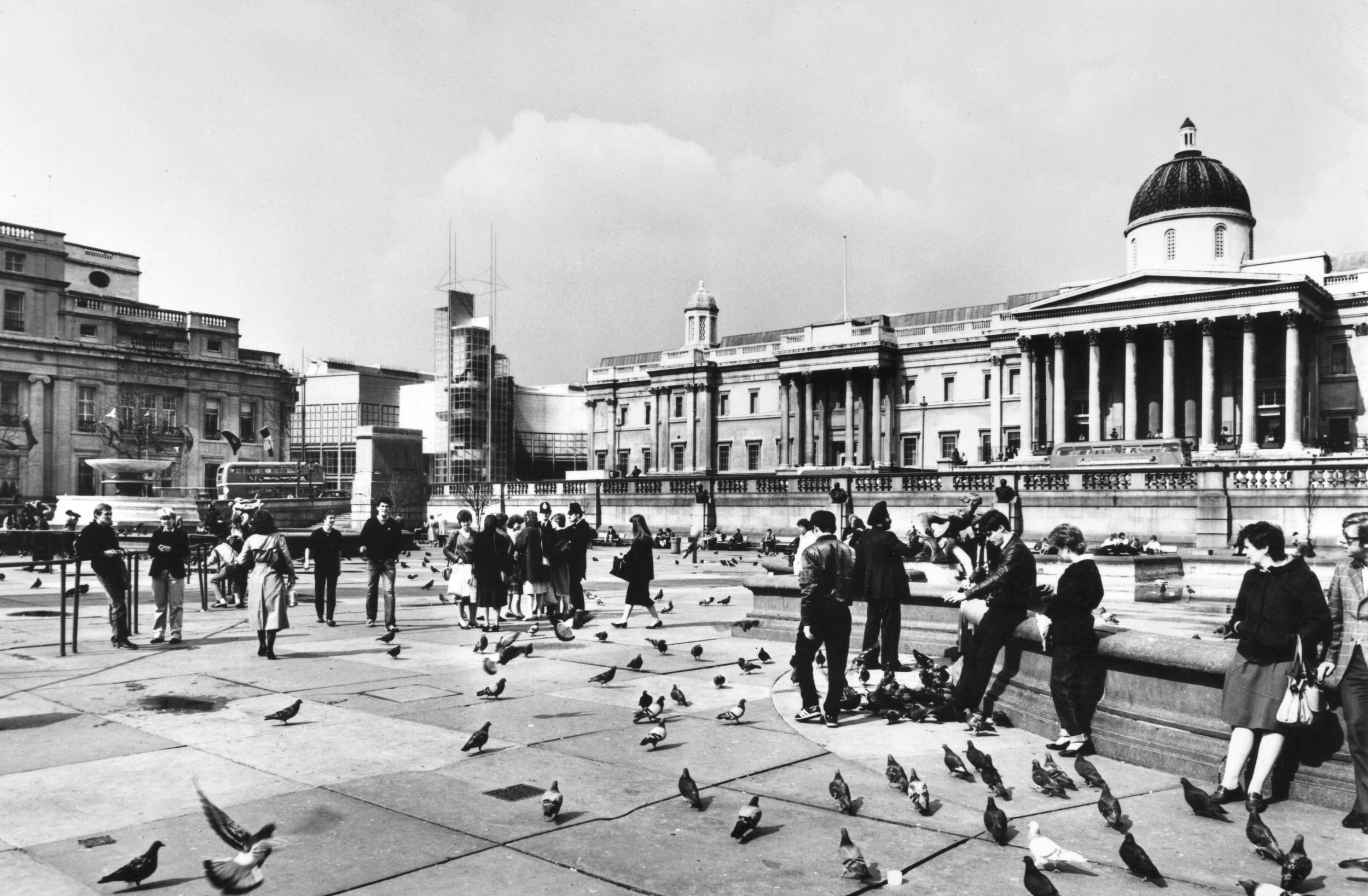
Difficulty and Delight: Unpacking the complexities of architectural success
This three-week in-person course explores the creativity and ingenuity needed to create buildings in all manner of environments. In collaboration with the RIBA.
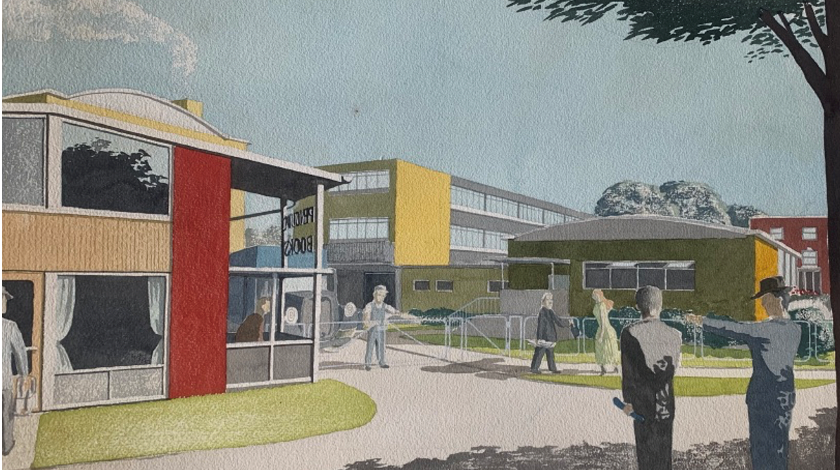
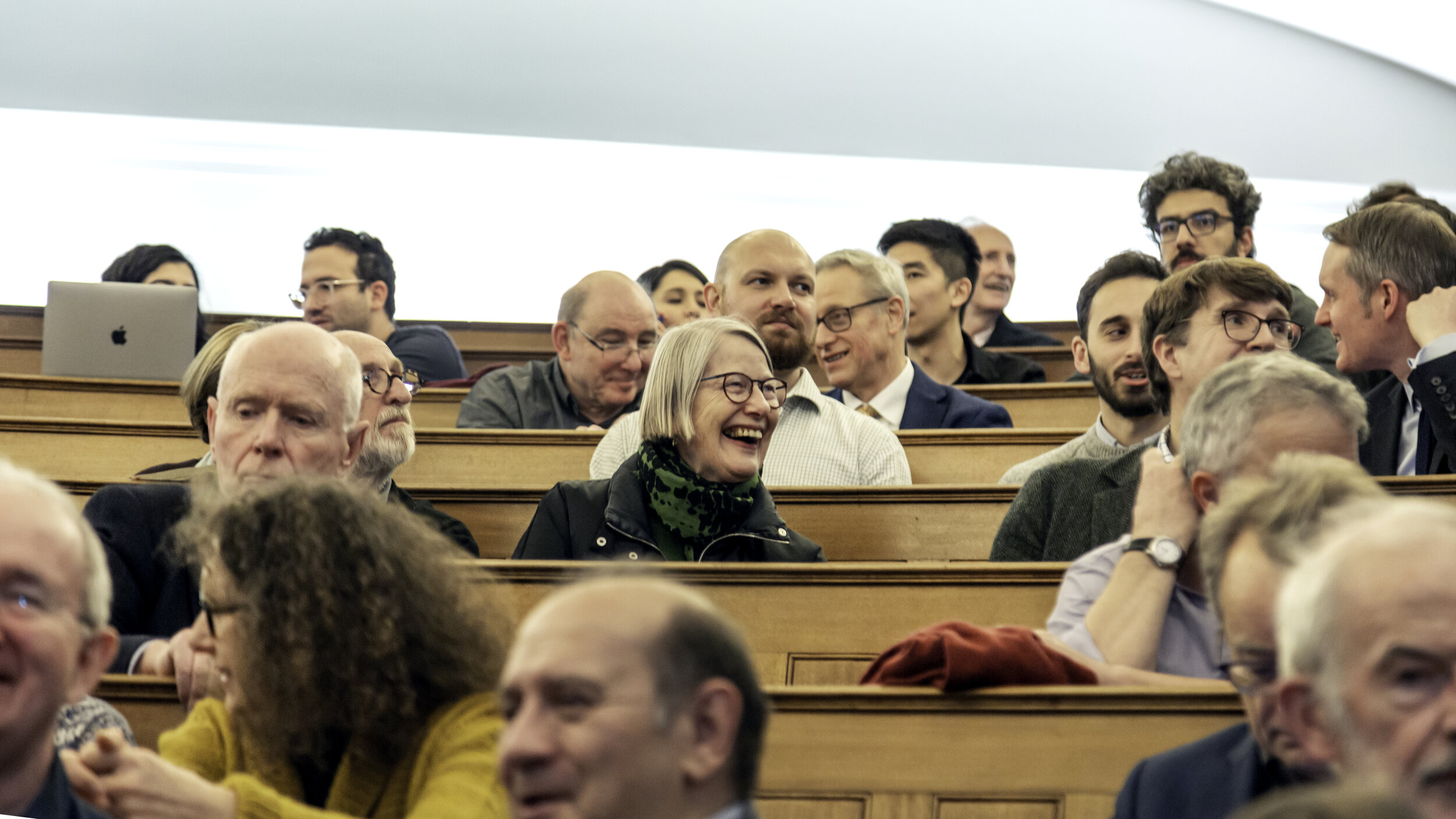
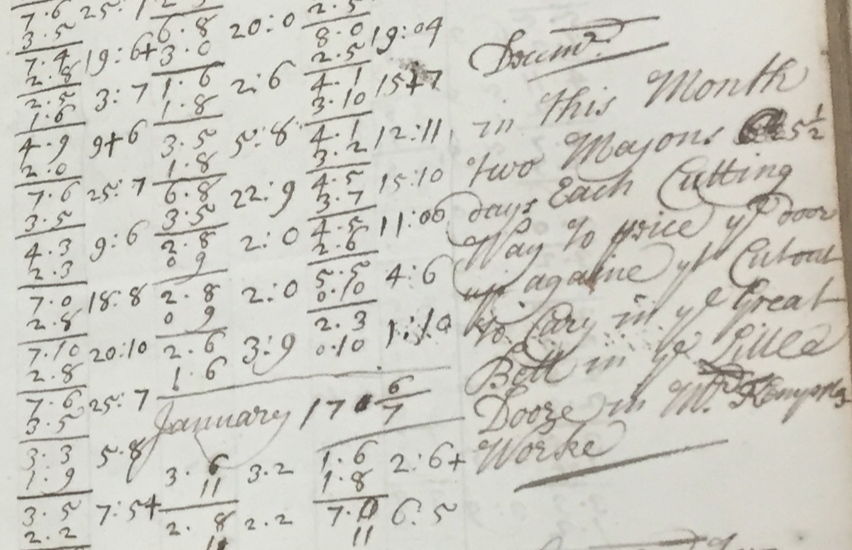
Women in Building Construction in the Early Modern Period
Abstract:
In a session held jointly with the seminar Architectural History (SAHGB/IHR) and the Women’s History seminar (IHR), a panel of researchers who are leaders in the field of women in building construction will discuss and debate the role of women in the building trades in the Early Modern Period. Questions and issues which have reoccurred in historical research over many years will be considered. What trades did women undertake? Did women learn and exercise building skills? Did they apply them on site or in workshops (were they hands-on?)? The historical record is very uneven and often unclear. Historians have questioned whether it can be assumed that a woman named as a carpenter, plumber, mason, etc. actually was. Long-standing issues of widows, apprenticeship and women in business as builders will be aired and interrogated from the different perspectives of speakers.
For the history of women in building construction in Britain and Ireland in the Early Modern Period, the discussion brings together Linda Clarke, Conor Lucey, Amy Erickson, and Kirsty Wright and Elizabeth C. Biggs with an overview of European gender-based practices from Shelley E. Roff. After short papers of ten minutes the panellists will follow up with a discussion of issues arising from the presentations, both contested and agreed, with those attending the seminar in-person and online invited to take part.
Recording:
To view recordings of our past events, please ensure that your active SAHGB Membership is connected to a Digital Account.
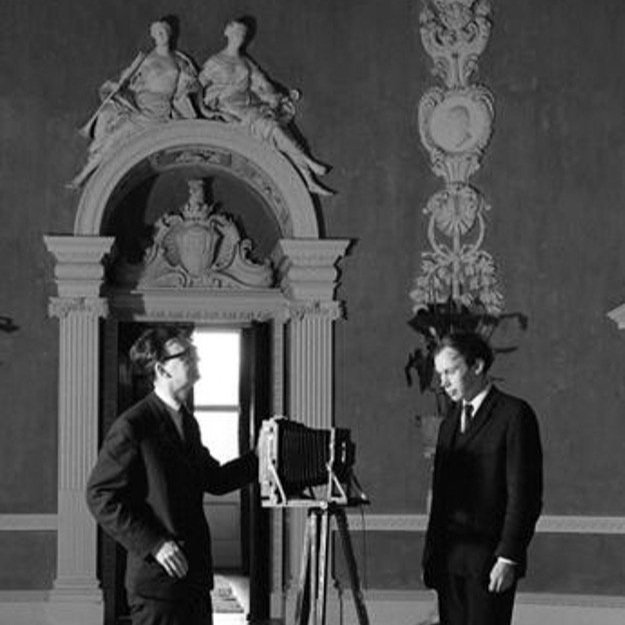
Looking Back - Looking Forward: The Work and Legacy of Mark Girouard
This symposium – organised jointly by The Courtauld, the University of Kent, and the SAHGB – celebrates the extraordinary work and legacy of Mark Girouard (1931-2022), one of Britain’s greatest architectural historians, whose work continues to revolutionise the scope and perceptions of the discipline both within academia and beyond. Mark’s knowledge and expertise were as eclectic as they were ground-breaking, whilst his infectious passion and willingness to share them with, and foster them in others, was truly remarkable. Several generations of architectural historians have benefitted from, and indeed have been formed by, his support and writings. It will provide an opportunity for some of the leading architectural historians of Britain and Ireland to both reflect on how the vast corpus of Mark’s work has influenced their own thinking in the past, and, most importantly, to present new research and novel insights within the various fields impacted by Mark’s writing.
The symposium has been planned to take place as part of the foundational year of the SAHGB Girouard Fund, established in Mark’s name to support publications, research and programmes in architectural history.
Opened with addresses given by the Märit Rausing Director of The Courtauld, Mark Hallett, and Blanche Girouard, the day will commence with a keynote paper given by Maurice Howard (University of Sussex), followed by three sessions, each covering a different realm impacted by Mark’s scholarship and academic influence. The sessions range from sixteenth-century architecture to present and future concerns in architectural history, and will consider Mark’s influence on subjects as various as Early Modern state apartments; the study and perception of the Irish country house; Victorian pubs; and modern architecture in the pages of Country Life.
The conference convenors are Manolo Guerci (University of Kent); Kyle Leyden (The Courtauld Institute) and Elizabeth McKellar (SAHGB President).
Speakers will include: Gordon Higgott (former English Heritage), Emily Cole (Historic England), Margot Finn (UCL), Frances Sands (Sir John Soane’s Museum), Patricia McCarthy (Trinity College, Dublin), John Martin Robinson (College of Arms), Edward McParland (Trinity College, Dublin), Andrew Saint (The Bartlett), Michael Hall (Apollo Magazine), Alan Powers (The 20 th Century Society), and Jeremy Musson (former Country Life).
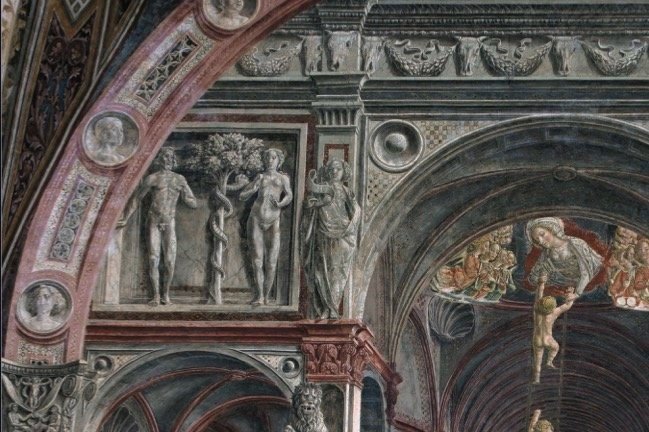
Painting Architecture in Early Renaissance Italy: Invention and Persuasion at the Intersection of Art and Architectural Practice
This SAHGB - IHR seminar will be a hybrid event, taking place online and in person at the Institute of Historical Research, Pollard N301 (3rd Floor, North Block of Senate House, Malet St, London WC1E 7HU).
Abstract:
Why did artists include prominent architectural settings in their narrative paintings? Why did they labour over specific, highly innovative structural solutions? Why did they endeavour to design original ornamental motifs which brought together sculptural, pictorial and architectural approaches, as well as showcasing their understanding of materiality?
Painting Architecture in Early Renaissance Italy addresses these questions in order to shed light on the early exchanges between artistic and architectural practice in Italy, arguing that architecture in painting provided a unique platform for architectural experimentation. Rather than interpreting architectural settings as purely spatial devices and as lesser counterparts of their built cognates, this book emphasises their intrinsic value as designs as well as communicative tools, contending that the architectural imagination of artists was instrumental in redefining the status of architectural forms as a kind of cultural currency.
Exploring the nexus between innovation and persuasion, Livia Lupi highlights an early form of little-discussed paragone between painting and architecture which relied on a shared understanding of architectural invention as a symbol of prestige. This approach offers a precious insight into how architectural forms were perceived and deployed, be they two or three-dimensional, at the same time clarifying the intersection of architecture and the figural arts in the work of later, influential figures like Giuliano da Sangallo, Raphael, Michelangelo and Baldassarre Peruzzi, whose work would not have been possible without the architectural experimentation of early fifteenth-century artists.
In conjunction with our October seminar, the speaker is leading a viewing of materials at the Soane Museum the same afternoon, limited to 10 places.
Registration:
Please use the form at the bottom of the page and watch for the pop-up message that will appear on screen after you submit your details. You can copy the Zoom details that will be shown in this message, for those joining remotely.
Speaker Bio:
Livia Lupi is a historian of art and architecture in early modern Europe, with a focus on the intersection of artistic and architectural practice. Her work has been funded by the Arts and Humanities Research Council, the Leverhulme Trust and the Warburg Institute. In addition to her research, she works as a curator, editor, and translator.
Image Caption: Book Cover, Painting Architecture in Early Renaissance Italy
Book A Place:
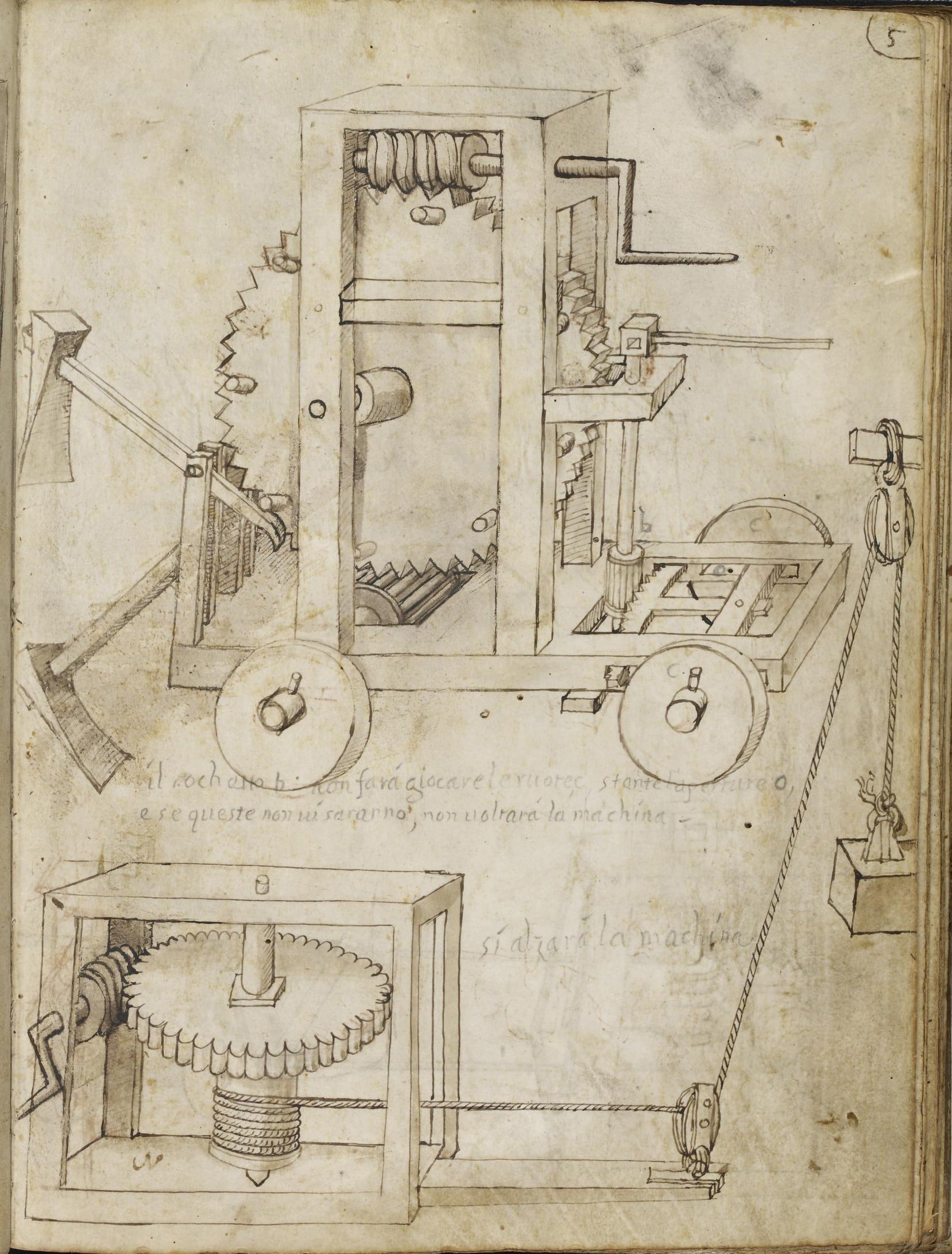
Architecture as Transmedial Practice: A First-Hand Examination of Copies from Francesco di Giorgio’s Opusculum and the North Italian Album
In conjunction with our October seminar, the speaker is leading this viewing of materials at the Soane Museum, limited to 10 places.
Abstract:
This visit is an opportunity to examine first-hand two key works of the Italian Renaissance in the collection of the Sir John Soane’s Museum: the North Italian Album (c. 1500) and a partial copy of Francesco di Giorgio’s Opusculum de architectura (vol. 128; c. 1550). The North Italian Album is an eclectic collection of cityscapes and colourful designs for buildings and objects. In dramatic opposition, the Francesco di Giorgio copy-drawings belong to a workaday model book of machine designs produced by tracing. Including comparative material in the Soane’s collection such as the remarkable Codex Coner, discussion will centre on the conventions of architectural drawings in Renaissance Italy and on the relationship between artistic and architectural practice, enabling participants to reflect on the strategies of architectural representation and questioning our understanding of what constitutes an architectural drawing. The visit is led by Livia Lupi (University of Warwick), author of Painting Architecture in Early Renaissance Italy and curator of forthcoming digital exhibition Beyond the Painter-Architect: Artists Reinventing Architecture in Renaissance Italy, and by Elizabeth Merrill (University of Ghent), an expert on Francesco di Giorgio and Principal Investigator of ERC project Copying as Common Practice in Early Modern European Architecture.
Registration:
To book a place, please email stephen.gage@sahgb.org.uk
Max. 10 participants
Speakers:
Livia Lupi is a historian of art and architecture in early modern Europe, with a focus on the intersection of artistic and architectural practice. Her work has been funded by the Arts and Humanities Research Council, the Leverhulme Trust and the Warburg Institute. In addition to her research, she works as a curator, editor, and translator.
Elizabeth Merrill specializes in early modern Italian architecture. Much of her research centers on Francesco di Giorgio Martini (1439-1501) and the artistic and technical culture of fifteenth-century Italy, which is traced through surviving model books, copy drawings, and illustrated treatises. Currently she is the Principal Investigator of the ERC-funded project “Copying as Common Practice in Early Modern European Architecture.”
Image Caption: Francesco di Giorgio Martini (1439-1501), Hoeing machine (top), and Windass with double-pulley (bottom), Opusculum de architectura, c. 1475. London, The British Museum, ms. 197.b.21, fol. 5r. © The Trustees of the British Museum
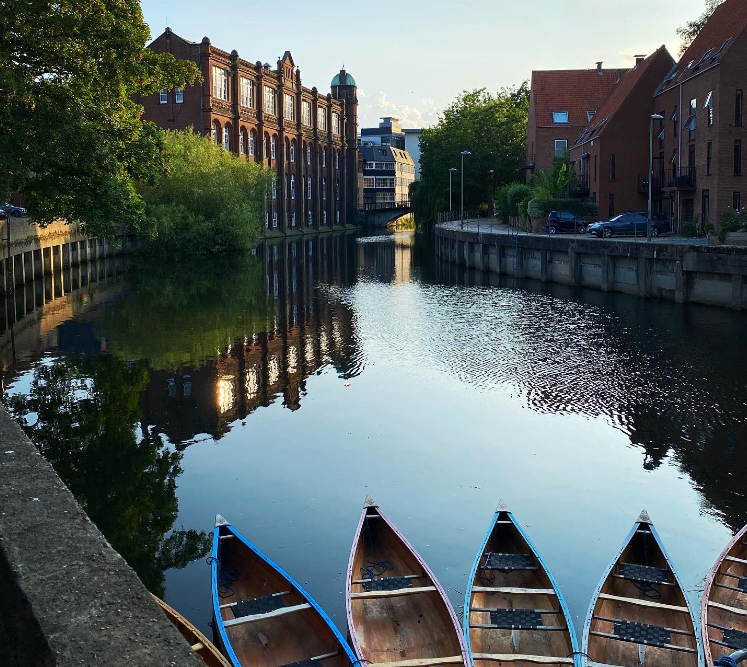
Members’ Study Tour to Norfolk and Norwich
River Wensum, Photo used with permission of Dr Stephen Gage
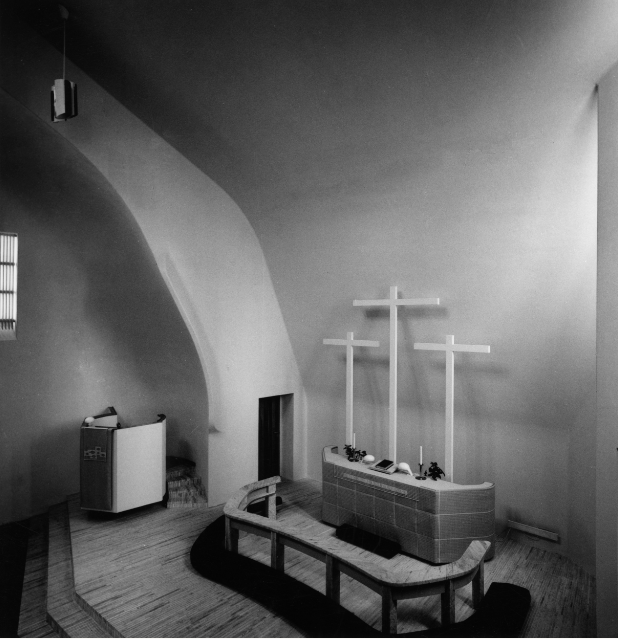
July Seminar: The Religious Architecture of Alvar, Aino and Elissa Aalto. Speaker: Sofia Singler
© Alvar Aalto Foundation. Church of the Three Crosses , 1958
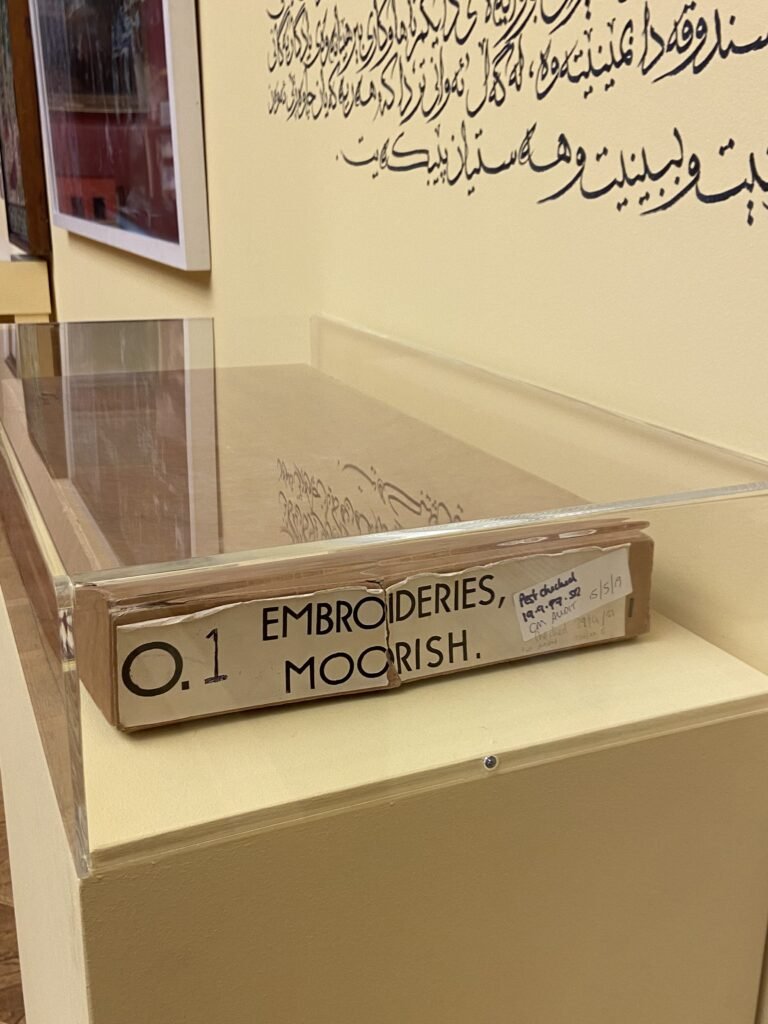
Re-Reading and Understanding the Narratives of the Other: Bookings closing today
NARRATIVES OF THE OTHER:
Bookings close at 5pm, 24th June 2024
There is increasing recognition that in order to foment real social progress, the acknowledgement of social struggles and the inclusion of voices, particularly of those from the ‘margins’, is required to alter entrenched social hegemonies. Such an imperative necessarily calls for the rewriting of architectural history.
This symposium is an invitation - in the wake of the awakenings which followed the killings of George Floyd, Breanna Taylor and others in the spring/summer of 2020 - to do just this! To challenge and subvert what is considered to be the “established” and the “canonical”.
The focus of this event is deliberately provocative and timely and we expect to see ‘othered’ voices come to the fore in what promises to be a fantastic two days.
To reach the organising team, please use the email symposium2024@sahgb.org.uk
SYMPOSIUM DETAILS:
Wednesday 26th June
Day 1 will consist of the Symposium itself chaired by Ann de Graft Johnson, founding member of legendary feminist design collective Matrix. Professor Renée Tobe of Leeds Beckett University - someone who has been working at the forefront of these issues for many years - will deliver the keynote.
Thursday 27th June
Day 2 will be a day of seminar and workshops for PhD candidates and early career workshops, where attendees will learn about the ins and outs of what to expect during the post-doc phase, such as publication.
To register and make a payment as a delegate, please use this form [LINK]
Bookings open until 5pm, 24 June 2024. Please do not attempt to book after this time.
KEY CONTRIBUTORS’ BIOGRAPHIES
Professor Renée Tobe will give the keynote. Professor Tobe is Professor of Architecture at Leeds School of Arts and former Head of the school of architecture at the University of East London.
She has been awarded a Paul Mellon Research Grant for work at the British School at Rome and a Research Fellowship at the Institute for Advanced Studies in Humanities at Edinburgh University. Her publications include Film, Architecture and Spatial Imagination and Architecture and Justice; Judicial Meanings in the Public Realm. She is currently writing Plato for Architects as part of the Routledge series of Philosophers for Architects.
She began as a practicing architect and maintains a connection to the practice of Architecture. While her earlier research investigates how we perceive, imagine, and visualise the solidity of architecture whether in the fluidity of film, or through the merest suggestion of form, her current work moves out of the ‘room’, the ‘home’ and the ‘house’ into the city, looking at how we occupy cities, and the nature of the cities we construct for ourselves. Political, social, and economic structures form part of this debate.
Ann de Graft-Johnson (RIBA) is a Senior Lecturer in Planning and Architecture, University of the West of England, Bristol.
Ann is an architect, educator, researcher and activist with an extensive body of work incorporating participatory community projects, academia and architectural practice.
Having undertaken and published several research projects, reports, conference papers and other critical writings Ann's work has focussed on addressing inclusion and issues of equality predominantly through a cultural and gender lens. It has been recognised for its sincerity, commitment and rigour, in its aim to work with organisations to support vital and positive change in academia, practice and society.
Ann was a member/director of Matrix Architects Feminist Cooperative which was nominated for the RIBA Gold Medal in 2021. Matrix actively worked to redress the balance in relation to groups who are underrepresented in decision making processes which affect the built environment.
The RIBA holds a Matrix archive and there is also a Matrix Open Feminist Architecture virtual archive (linked here).
Join In:
To reach the organising team, please use the email symposium2024@sahgb.org.uk
Please make your booking with card payment on this form, by 5pm on 24 June 2024 [LINK]
Booking for full event: £48
Booking for Day One only: £31.50
Booking for Day Two only: £16.50
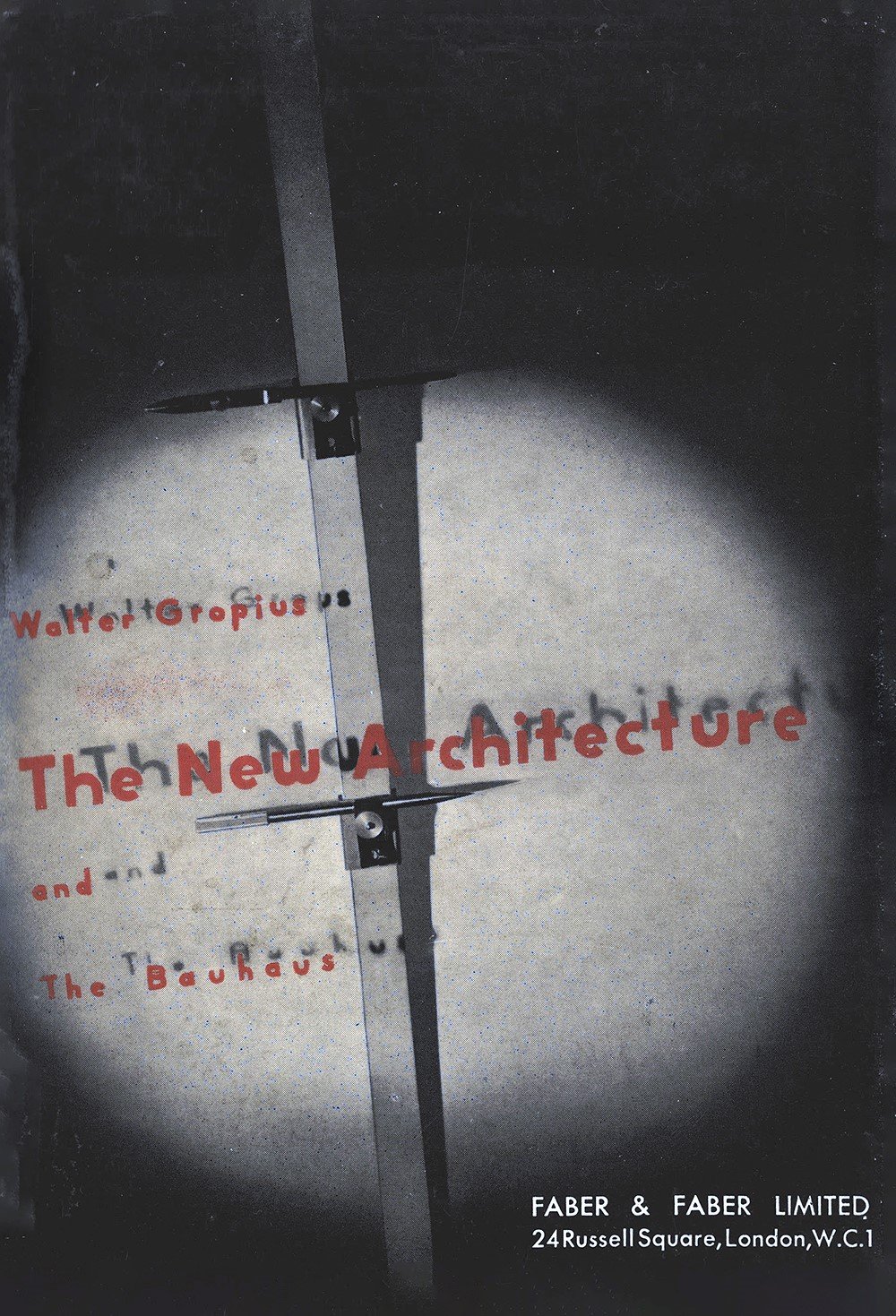
Seminar: The Network around Walter Gropius in Britain, 1934 - 37. Speaker: Alborz Dianat
This SAHGB - IHR seminar will be a hybrid event, taking place online and in person at the Institute of Historical Research, Pollard N301 (3rd Floor, North Block of Senate House, Malet St, London WC1E 7HU).
ABSTRACT
Bauhaus founder Walter Gropius emigrated from Nazi Germany to Britain in 1934.
This seminar investigates the role of those aiding his re-establishment. The promotion of Ise Gropius is considered, her fluency in English making up for her husband’s initial weakness. She was supported by the critic Philip Morton Shand, who laboured to appeal to British audiences while translating Gropius’s book, The New Architecture and the Bauhaus. Comparison with the original German manuscript reveals drastic revisions to domesticate alien ideas. The buildings Gropius produced in Britain demonstrate the architectural outcome of this domestication. His design of Impington Village College with Maxwell Fry, an attempt to engage with indigenous formal and sociological trends.
Adapted in both writing and architecture, Gropius was spared the intolerances affecting other foreign architects, particularly Jewish émigrés. Amid debates around British architectural identity, Gropius was falsely depicted as a temporary visitor sent by the German state: an inspirational exponent of nationalism. Based on archival research, this seminar considers how Britons co-opted Gropius to their cause, boosting his profile in Anglophone media, enabling his move to the United States in 1937, and encouraging his enduring dominance in histories.his is
Registration:
Please use the form below and watch for the pop-up message that will appear onscreen after you submit your details. You can copy the Zoom details that will be shown in this message, for those joining remotely.
BIO
Dr Alborz Dianat is a researcher at University College Dublin and Executive Editor of the SAHGB Journal, Architectural History. His book, Walter Gropius in Britain: Emigration and Collaborations, is scheduled to be published by Routledge.
Images:
Walter Gropius, The New Architecture and the Bauhaus, dust jacket by László Moholy-Nagy, 1935: Public Domain
Book A Place:
Calling SAHGB Members!
Our Early Career Researcher Symposium will take place at Birmingham City University in June 2024. Please look out for how to register for this. The Call for Papers is open until 10 May
We launched a new Fund for Publications in December in memory of the prolific Architectural Historian, Mark Girouard. We are fundraising and building a page to collect resources about his work, and to encourage gift-giving so that we can support and inspire with future grants.
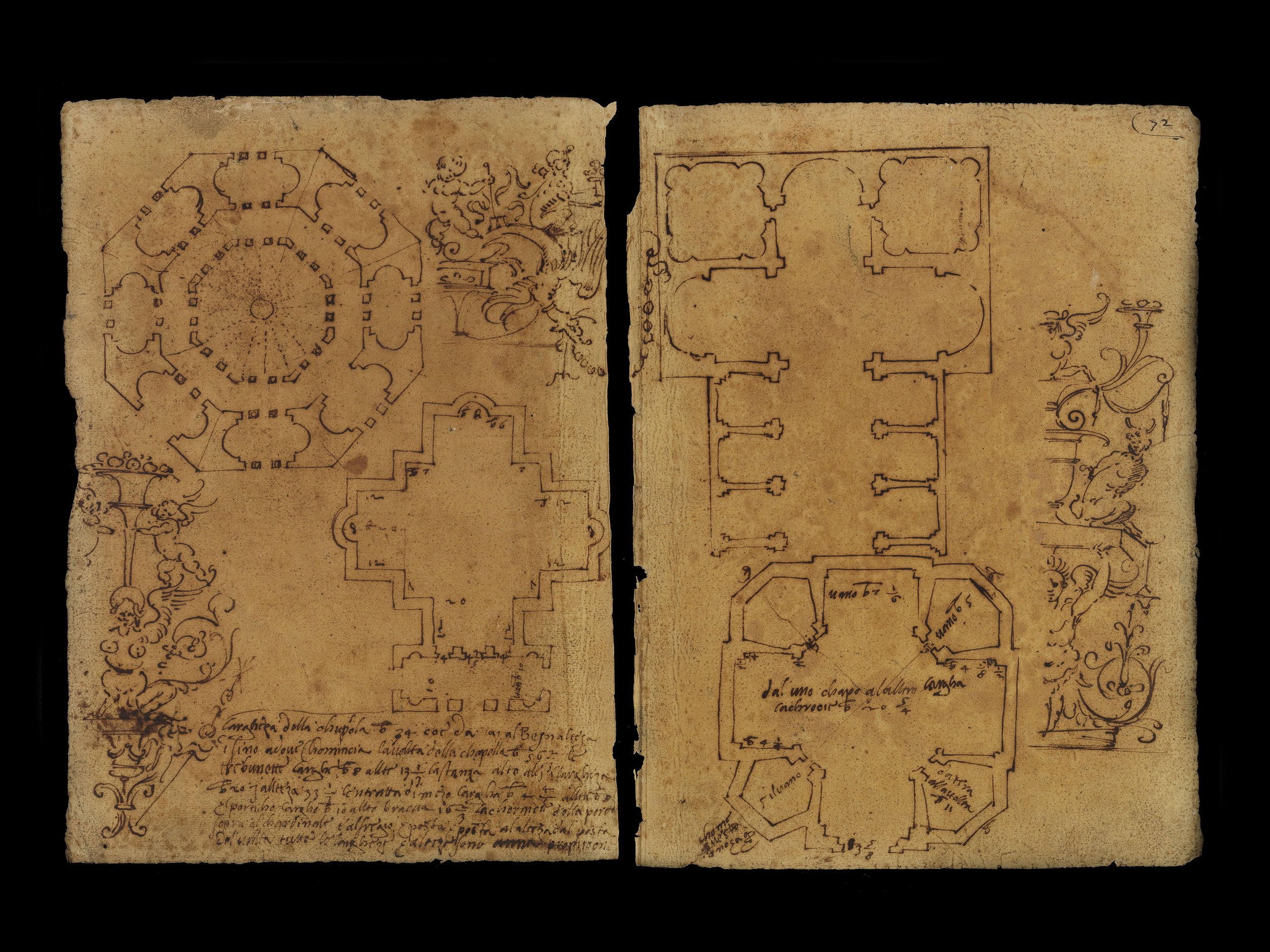
Seminar: Architectural Tracings and the Fragility of Design Authorship. Speaker: Elizabeth Merrill
Used with permission of Drawing Matter, inv. 2159.007
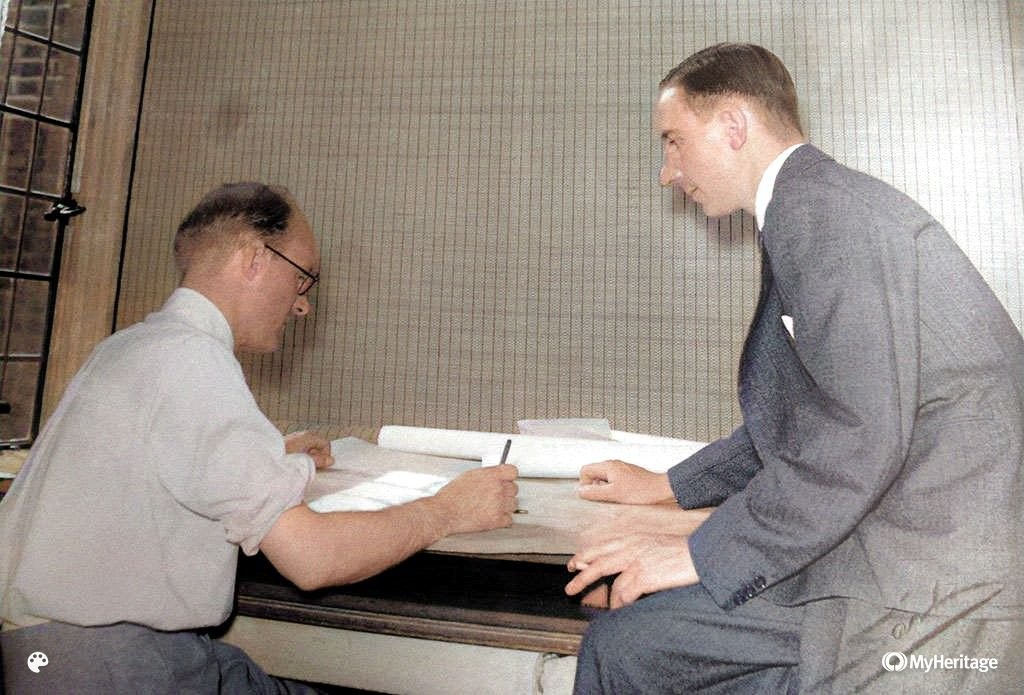
Seely and Paget in the 21st Century: Restoration and Reputation (Registrations closing soon)
Register to attend this one-day conference exploring the architects Seely and Paget, the restoration of their buildings and reputation of their work and life in the 21st century.
Registration will close on Friday 26 April (12 noon).
An event supported by five partners, this will take place in the fascinating surroundings of The Charterhouse, Clerkenwell.
Restoration and Reputation
Buildings of the architectural practice of Seely and Paget, between 1920s - c1970, were not greatly celebrated in their time, then largely overlooked as modernism became dominant through the second half of the twentieth century. While architecture of the period is now being reappraised, John Seely and Paul Paget’s personal relationship has also attracted comment.
This day conference, hosted in buildings which they restored after extensive bomb damage in 1941, will look at recent restorations of their buildings and how they alter assessments of Seely and Paget.
Image: Charterhouse, Master’s Court, used with permission
How to register:
Places at the conference are £38, to include lunch and refreshments.
The event will run from approx. 09:30 - 4:30
This is an in-person event though please note that it will be recorded.
Please scroll down to the form and watch for a message that will confirm your place. We will send further information to those registered for this event. To allow us to check registrations, these will be sent on working days: thank you for your patience.
For access and travel information, please explore the website of The Charterhouse. For further enquiries, please contact admin.ocmch@brookes.ac.uk
If you are interested in this conference, Dr Peter Forsaith, Research Fellow of the Oxford Centre for Methodism and Church History, Oxford Brookes University, will also be giving a lecture at Seely and Paget’s first major commission: St. Faith’s Church, Lee-on-the-Solent. This will take place on 23rd March, with further information here.
With thanks to all our supporting partners
Past Events
Annual Lectures
2025
Tanvir Hasan, Tim Foxall, Níall McLaughin, Ingrid Schroder, Amin Taha, A Conversation About the Shape of Buildings to Come
2024
Paul Binski, Architecture and Affect in the Middle Ages
2023
Tim Benton, Badovici’s Eclectic Modern: The Vézelay Houses
2022
-
2021
Christine Stevenson, Telling Stories of the Great Fire of London
2020
Lynne Walker, Gender, Mythology and Architectural History: Narrating a Journey





